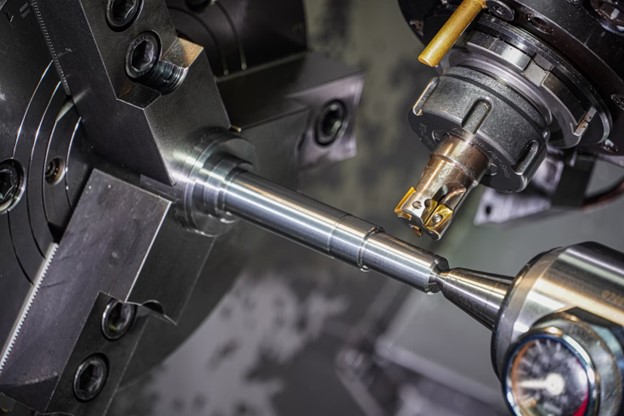My blog focuses on Business/Entrepreneurship and Technology. When you are running a business that runs off machines, running it efficiently with the best equipment is paramount. The following contributed post is entitled, How Smarter Machining Boosts Manufacturing Production Without Adding More Machines.
* * *
Improving production isn’t always about buying more equipment or expanding the shop floor. More often than not, the biggest gains come from making the machines already in place work more efficiently and effectively. When your business learns how to get more from what it already owns, you can cut downtime, shorten cycle times, and raise your production without any extra investment.
For manufacturers that are looking to stay competitive, smarter machining is about focusing on process improvements, training, and smarter tool choices that allow machines to perform at their best. By thinking carefully about how parts are made, how tools are maintained, and how systems communicate, it’s possible to see real production growth with the same set of machines.

Source: Unsplash (CC0)
Looking at the process differently
One of the first steps toward smarter machining is taking a deep and honest look at your existing processes. Instead of speeding up machines or pushing them harder, production teams should be trying to identify where the inefficiencies are. By making small tweaks in areas like setup time, programming, or tool paths, you can deliver some surprisingly big improvements in output without increasing stress on equipment.
This kind of mindset focuses on precision and planning over plain raw speed. When your team starts to measure each stage carefully, they’ll find that their efficiency often depends on reducing unnecessary steps and improving consistency, rather than running at maximum power all the time.
The role of modern tooling
Modern cutting tools are one of the best ways to raise productivity. The right tool can drastically increase material removal rates, extend tool life, and improve surface finishes. For instance, companies like CNC Broach Tools provide everything to help manufacturers perform internal keyway cutting directly on a lathe or mill instead of sending parts out for secondary operations. This simple change saves setup time, reduces handling, and makes production smoother.
Smarter tooling helps manufacturers do more in one setup, and this frees up machines for new jobs faster while keeping the workflow steady. It’s a good example of how innovation can lead to large-scale improvements.
Training and skill development
No machine or tool upgrade is effective if the people running the equipment aren’t confident in how to use it or capable enough. Skilled machinists can often catch small issues before they become big enough production problems. That’s why investing in training is one of the easiest ways to boost throughput because experienced operators make better decisions on the floor.
The right training gives workers the ability to adapt as materials, tolerances, or equipment change. In many cases, smarter machining is just the result of giving people more time and knowledge that they need to improve their own methods.
Avoiding shortcuts that cost more in the long run
Many production problems come from trying to save time through bad manufacturing shortcuts. This could mean skipping calibration checks, ignoring tool wear, or even rushing setups. It all leads to inconsistent parts that end up being scrapped or reworked.
It’s often smarter to focus on doing each step correctly and maintaining quality at every stage. Consistency in machining builds trust with customers and keeps costs predictable. That’s the kind of stability that allows a shop to grow.
